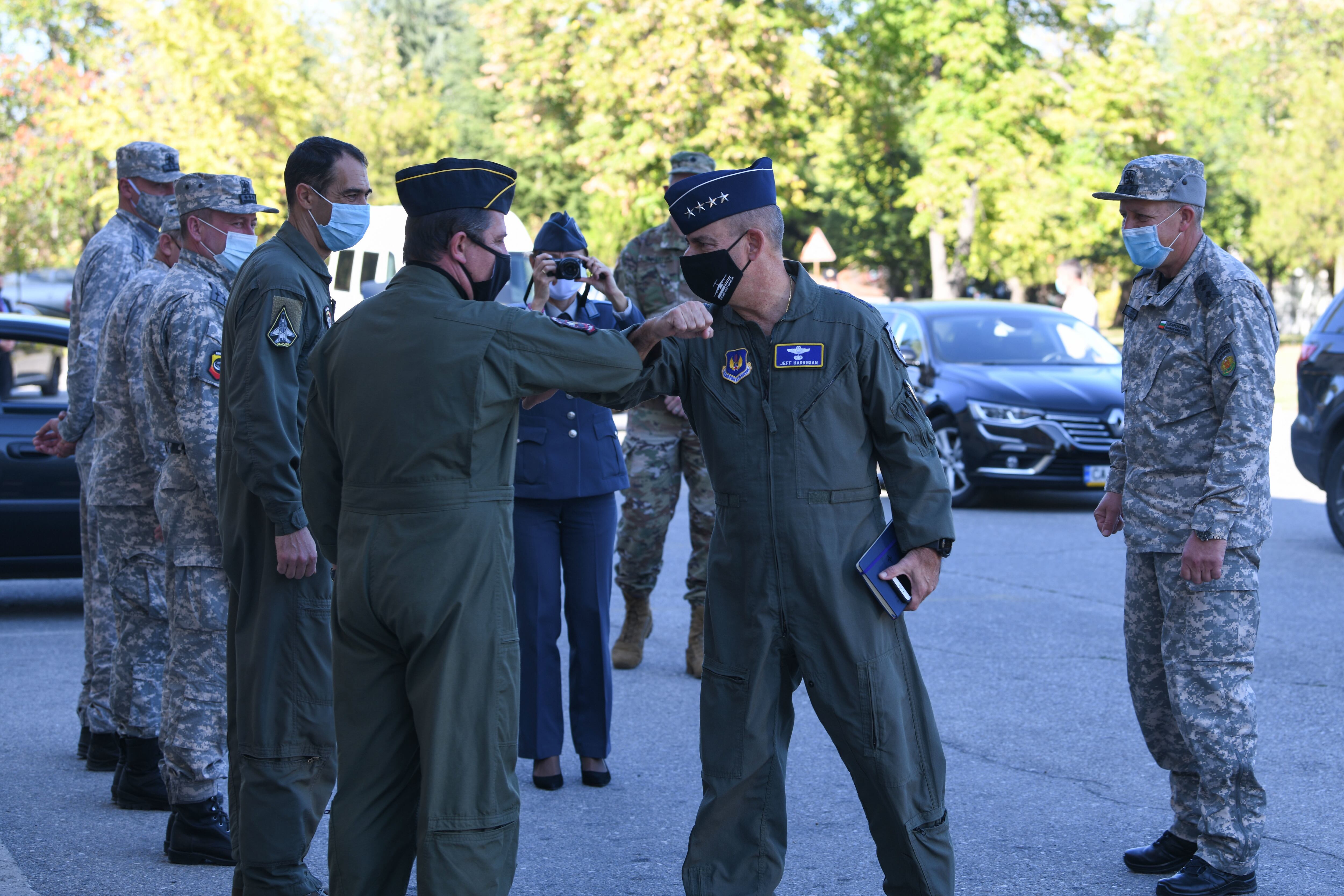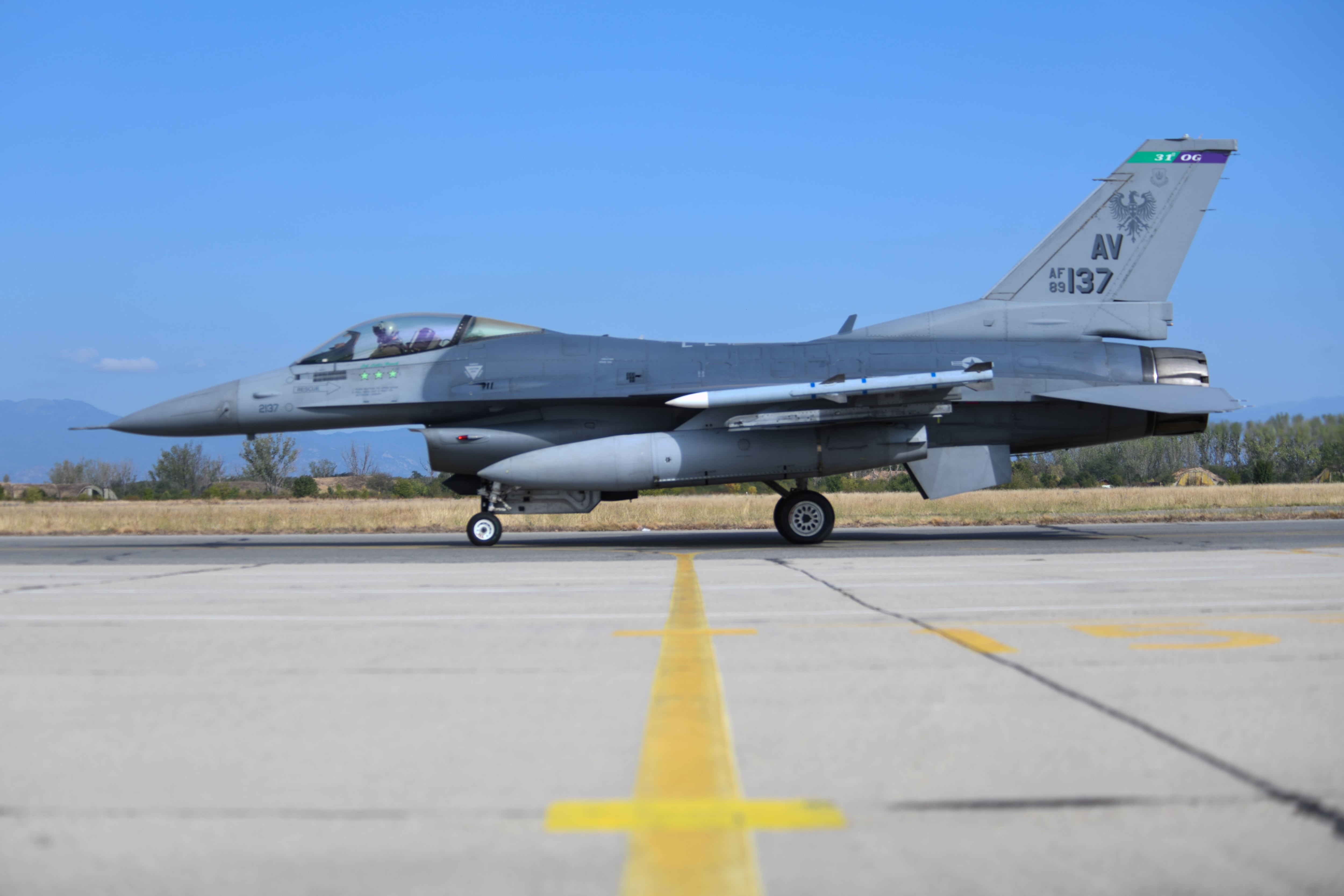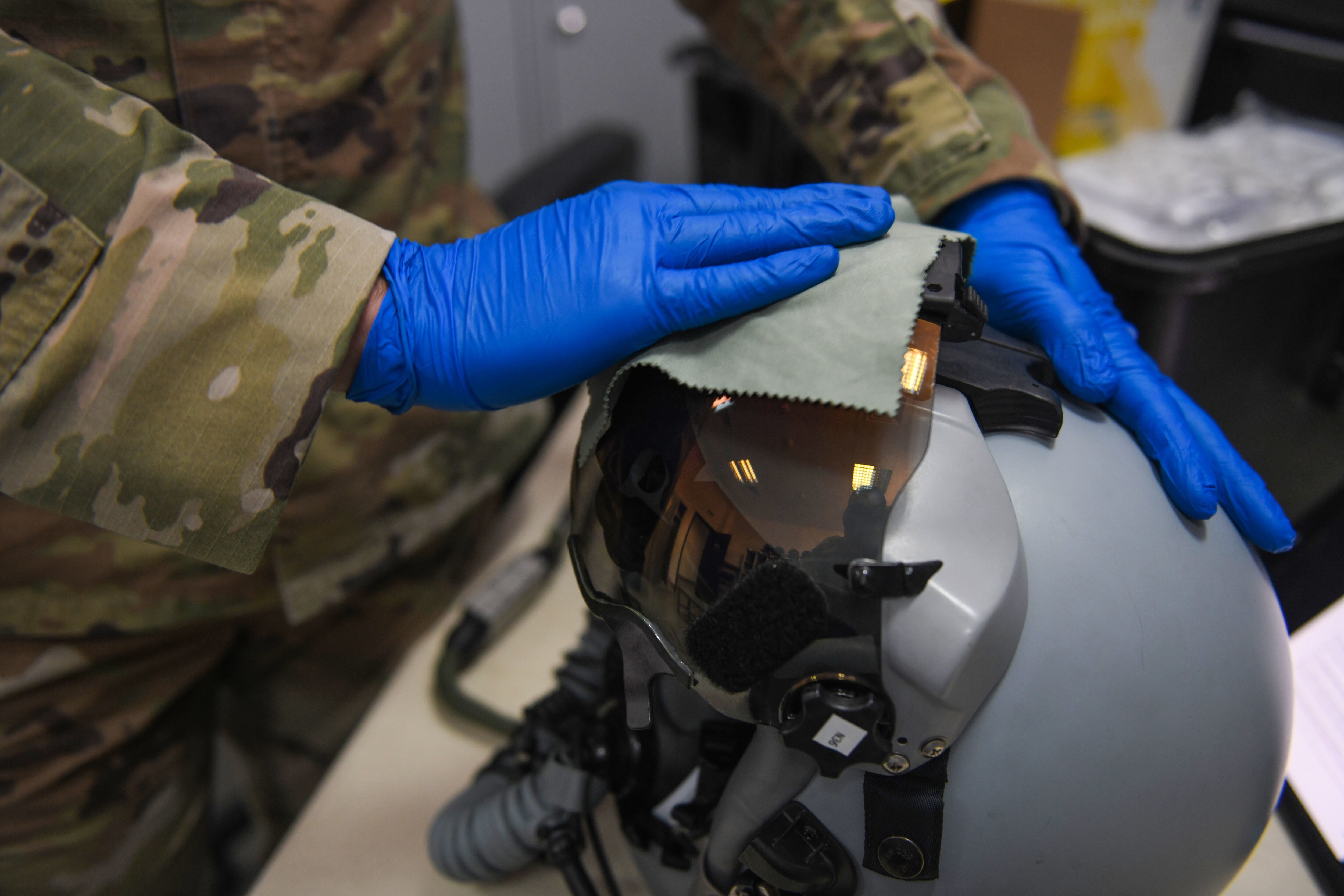The 555th Fighter Squadron and other units from Aviano Air Base in Italy on Friday wrapped up a four-week deployment to Bulgaria to help the nation police its air borders.
NATO’s Enhanced Air Policing mission is meant to ensure the integrity and security of the allies' airspace. In an Oct. 14 release, the Air Force said it’s meant to demonstrate NATO’s solidarity and ability to adapt its defensive and deterrence capabilities to respond to changing circumstances.
Six F-16 Fighting Falcons and about 140 airmen from the 555th, along with other Aviano units, deployed to Bulgaria’s Graf Ignatievo Air Base on Sept. 28, the Air Force said. The 555th is part of the 31st Fighter Wing at Aviano.
Gen. Jeff Harrigian, commander of U.S. Air Forces in Europe-Air Forces Africa, traveled to Graf Ignatievo Oct. 21 to meet with Bulgarian defense officials and other leaders to talk about the two nations' relationship and cooperation, such as through Enhanced Air Policing and the recent Thracian Viper exercise.

“These exercises are vitally important, as they allow for us to focus on regional security, access and coalition operations that improve our ability to operate together and rapidly deploy to meet any emerging threat at a moment’s notice,” Harrigian said in a Friday release.
Thracian Viper involved another deployment of six F-16s from the 555th, also known as the Triple Nickel, to Graf Ignatievo, from Sept. 18 to 25. That week, they engaged in a series of air-to-air and air-to-ground training flights with the Bulgarians.
RELATED

Harrigian said, in written responses to Air Force Times' follow-up questions on Friday, that USAFE airmen have provided support to Bulgarian airmen flying MiG-29s out of Graf Ignatievo, to “ensur[e] the safety and security of the Black Sea region.”
Harrigian said that U.S. airmen primarily provided support to the Bulgarians with their F-16s, and relied on the Bulgarians to tackle command and control.
“One of the benefits of this is it shows that we have a robust and interoperable team,” Harrigian said in the email. “The fact that we are able to deploy in small packages and relay on our NATO allies for command and control is a simple way to show what we mean when we say that we are stronger together.”
In an email, USAFE spokeswoman Maj. Selena Rodts said that F-16s from the 31st were on alert for the first three weeks of October to scramble in the event of an alert from the Combined Air Operations Centre in Torrejon, Spain. And the F-16s patrolled alongside Bulgarians and other allies, she said.
Rodts said that after Russia’s annexation of Crimea and invasion of Ukraine in 2014, NATO allies agreed that measures needed to be taken to assure its members on the alliance’s eastern flank.
NATO came up with separate assurance measures for the north — Norway, Poland and the Baltics — and the south, Bulgaria and Romania, “to be the new normal demonstrating NATO cohesion, solidarity and commitment to deter any aggression or any potential aggression against NATO,” she said.
One element of those new measures was to rotate additional fighter detachments through eastern flank nations like Bulgaria as part of the Enhanced Air Policing program, Rodts said.
“Bulgaria and Romania are fully capable of conducting NATO air policing with their own fighters,” Harrigian said. “The additional allied rotations enhance NATO’s capability to safeguard its airspace and sends a signal of readiness and deterrence. [Enhanced Air Policing] ensures the sovereignty and integrity of Eastern European airspace as part of the common NATO airspace.”

The other Aviano airmen who traveled to Graf Ingatievo included aircrew flight equipment technicians from the 31st Operations Support Squadron such as Airman 1st Class Matthew Giordano, the Air Force said in the Oct. 14 release.
Aircrew flight equipment airmen are in charge of inspecting and maintaining equipment such as oxygen masks necessary to keep pilots breathing at high altitudes, as well as life preservers, survival masks, anti-exposure suits, radios and recovery kits, the release said.
“The best part of my job is having the opportunity to ensure aircrew have the necessary equipment to complete the mission,” Giordano said in the release. “Knowing that my job can be life-saving means I have to give it all I got, no matter the day of the week. I am in charge of someone’s life, and that is a big responsibility.”
Giordano said airmen like him also check aircrew’s gear after flights to make sure nothing is broken or degraded, and see if the pilots had any issues. They use equipment such as oxygen testers, leakage testers and radio testers to see if there are any problems, such as by making sure there are no leaks in pilots' helmets or masks.
“We, alongside our NATO allies, are committed to strengthening our collective defense capabilities in the Black Sea region,” Harrigian said.
Stephen Losey is the air warfare reporter for Defense News. He previously covered leadership and personnel issues at Air Force Times, and the Pentagon, special operations and air warfare at Military.com. He has traveled to the Middle East to cover U.S. Air Force operations.




